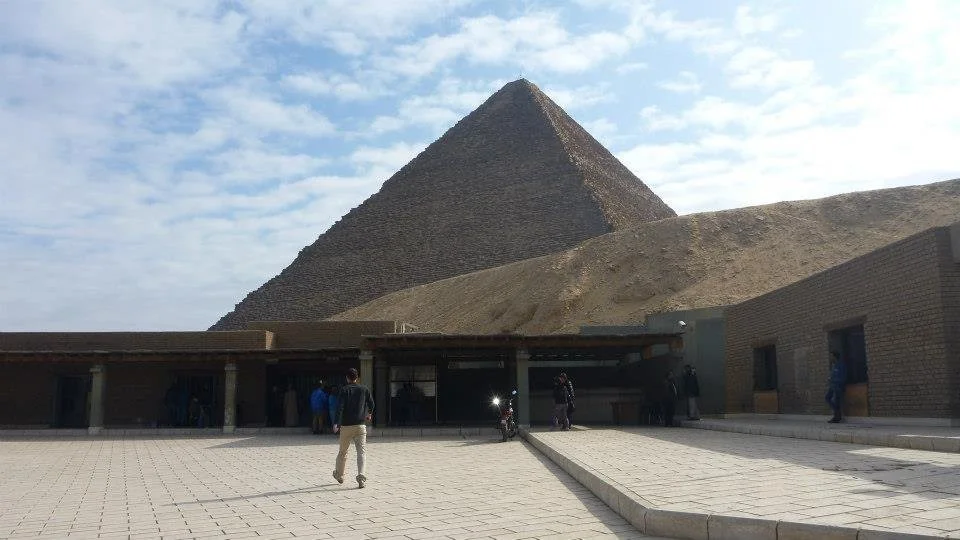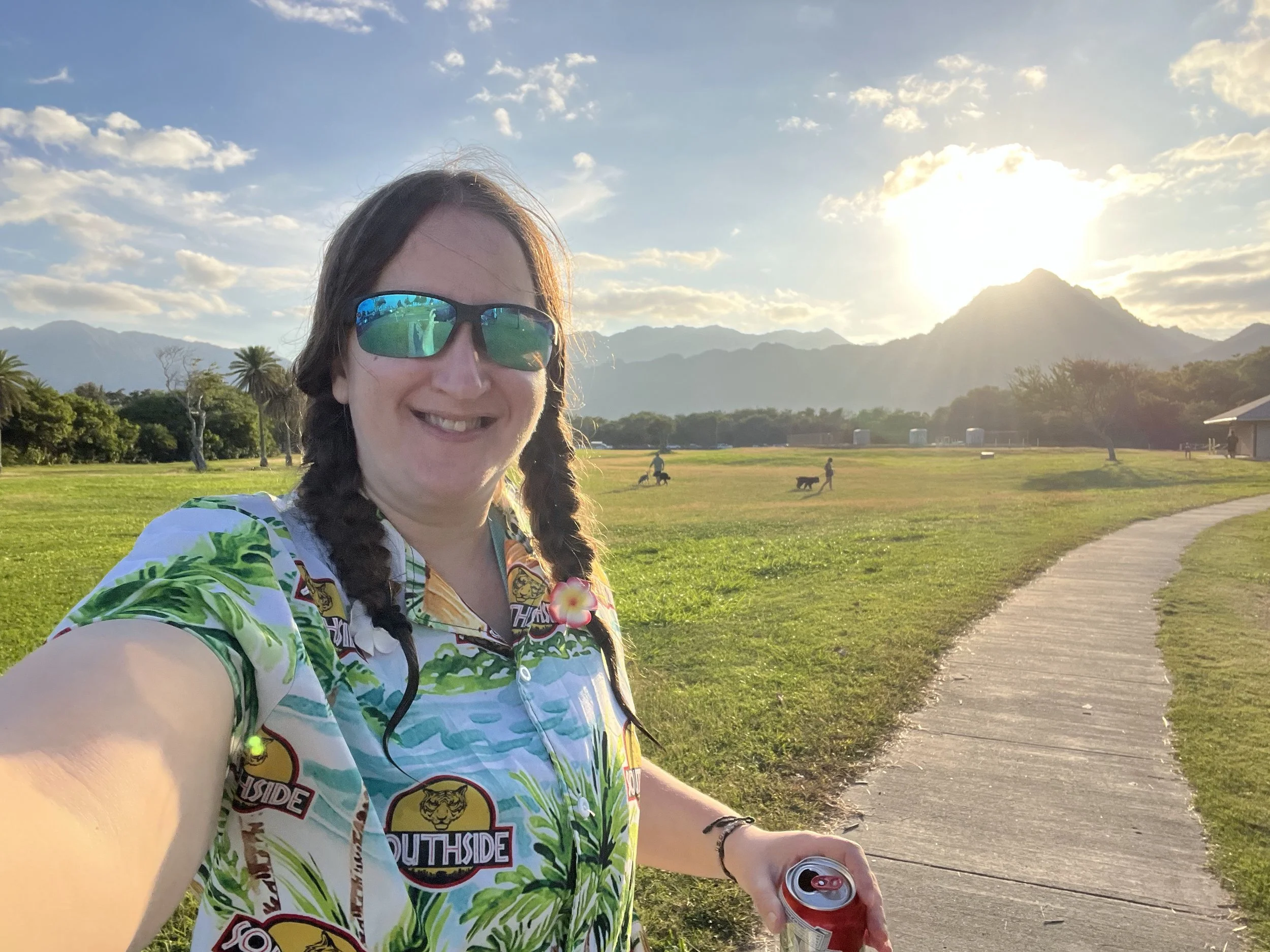Travel Insurance: To Buy or Not to Buy?
When I first started traveling, I was young and reckless. My attitude was: I never go to the hospital at home—why would I need travel insurance abroad? I figured if I got sick, I could just grab something at a pharmacy and carry on.
For a while, I was lucky. But travel has a way of humbling you. Over the years, I’ve had enough mishaps—from swords to scooters to funerals—that I’ve learned one lesson the hard way: it’s always better to have travel insurance and not need it than to need it and not have it.
Here are some of my personal experiences—good, bad, and messy—that taught me the real value of travel insurance.
“A scooter crash in Laos left me with a nasty scrape — luckily, medical care was affordable, but it was a reminder that accidents happen anywhere.
The Samurai Sword in Australia
My first real brush with medical care abroad came in Exmouth, a small town on Australia’s west coast. One night I was drinking, spotted a samurai sword, and assumed it was a prop. Spoiler alert: it wasn’t. When I grabbed it, I sliced open the palm of my hand.
The next morning, I tried to buy bandages at the pharmacy, but they told me I had to see a doctor first. Off to the hospital I went.
The experience was almost identical to Canada. They asked me how it happened (my story was a little fuzzy at that point), cleaned up the cut, and warned me to watch for infection. Luckily, the cut wasn’t deep enough for stitches. Because I was in a small town, the hospital was easy to navigate and there was hardly any wait.
The bill? $120 AUD for the visit and a week of antibiotics. Not devastating, but it opened my eyes. And yes—I still have the scar to this day as a reminder.
💡 Lesson learned: Accidents don’t care how old or healthy you are. If you’re traveling, you need coverage.
Exmouth, Australia — paradise with a scar. A samurai sword mishap landed me in the hospital with a $120 bill and a lifelong reminder.
My Bank Card’s Built-In Coverage
A few years later, I discovered that my bank was offering a travel Mastercard with medical and travel insurance included. The yearly fee was only $79 CAD, and it gave me peace of mind without having to buy a separate policy.
It worked for a while, but over time the benefits dwindled. Now the fee is $34/year—but with almost no coverage. Back then, though, it gave me my first taste of how easy it was to get protected with the right card.
💡 Lesson learned: Credit cards can be a good option, but always read the fine print. Benefits often change.
Your passport and credit card aren’t enough — don’t assume your bank card’s ‘free’ insurance will cover everything.
The Dominican Republic: My Mom’s Scare
One of my biggest eye-openers happened on a trip to the Dominican Republic. We were there for my friend’s wedding with a group of 89 people. Out of everyone, 87 got sick—including me. (Trust me, diving while sick is not fun… but that’s another story for another day.)
My mom was one of just two people from the group who ended up in the hospital. Her medical insurance covered the bills and medication, but when the doctor wanted her to stay an extra day, we realized the problem: she didn’t have travel insurance.
That meant the hotel stay and flight changes would have been out of pocket. It would have cost a pretty penny, so she made the tough call to leave against medical advice. She had to sign a waiver, and the decision felt rushed—but at the time it was the only option.
Until that trip, we didn’t even realize there was a difference between medical insurance and travel insurance. Now it’s something we never overlook.
💡 Lesson learned: Medical insurance covers the hospital. Travel insurance covers everything else—trip delays, interruptions, baggage, and sometimes even your travel companion. Always check what you actually have.
My mom ended up in a Dominican Republic hospital — medical bills were covered, but without travel insurance, flight and hotel changes weren’t.
Buying Insurance at the Post Office (UK → Egypt)
Some countries won’t even let you in without coverage. When I was living in the UK and planned a trip to Egypt, I had to buy travel insurance.
The process was surprisingly simple—it took about 10 minutes. The cost was £50 for 10 days, which I thought was reasonable. The strange part? I bought it at the Post Office. I remember thinking: Only in England can you send a package, renew your car tax, and buy travel insurance at the same counter.
💡 Lesson learned: Some countries require proof of insurance at entry. Always check the rules before you go.
Egypt — some countries require proof of travel insurance before you even enter. No policy, no pyramids.
Long-Term Coverage with World Nomads
After Covid, I set out on a long trip through Central America. Many countries required proof of insurance, so I researched endlessly. World Nomads Travel Insurance had great reviews online and offered policies that covered both medical and travel issues. The fact that it included adventure sports sealed the deal—I was planning to scuba dive, hike volcanoes, and go horseback riding.
The cost was about $1,500 CAD for a year, with up to $5 million CAD in medical coverage.
Early in the trip, while in Panama, disaster struck. I was on the beach at sunset, snapping photos, when a wave rushed up and snatched my phone. Instant dread hit me. The walk back to my hostel was long, dark, and without streetlights—not the safest feeling.
I wasn’t sure if my insurance would even cover it, but I filed a claim anyway. To my surprise, it worked. With a witness statement from the hotel staff and a police report, I received a $750 check to replace my iPhone.
Later, in Colombia, my wallet was stolen. My bank promised they’d send me a replacement card, but days turned into weeks with constant “it should arrive tomorrow” updates. After two weeks of waiting, I gave up and flew home. My insurance policy was still valid for the full year, but I only ended up using about nine months of it.
💡 Lesson learned: Even when things feel hopeless, file the claim—you might be pleasantly surprised. And if your trip ends early, your coverage usually still remains valid until the policy expires.
A simple trip in Colombia landed me with an injury that took weeks to heal — proof that even small mishaps can disrupt your travels.
Working Abroad: Thailand, Korea, Vietnam, China
When I work overseas, I usually rely on medical insurance from my employer. In Thailand and Korea, it was solid. In Vietnam, hospital visits were so cheap they barely registered.
One day in Vietnam, I was clotheslined while riding my scooter and ended up with a nasty black eye. My friend came to the rescue, taking me to the hospital and paying the bill since staff didn’t speak much English. My boss didn’t care at all and told me to go later, but thankfully my friend insisted. I never even found out how much it cost—but thankfully, it wasn’t much. The bruise healed just in time for my next trip to Europe.
In China, I went to an international hospital for a sickness no one could identify. They sent me away with a pile of herbal medicine that didn’t work, but the cost was still low compared to Canada.
💡 Lesson learned: Even if healthcare is cheap, insurance is essential. A scooter accident or broken bone can wipe out savings fast.
Exploring Vietnam by scooter was incredible — but insurance is essential when adventure meets risk.
Trip Interrupted in 2024
My last big trip included Japan, China, and the U.S. While in Japan, I got the call no one wants: my grandma had passed away. I was due to fly to Shanghai the next day to meet a friend, and at first I didn’t think I’d make it to the funeral.
Once I knew the date, I scrambled to change everything—flights, hotels, tickets. While at Shanghai Disneyland, I was frantically on my phone trying to rearrange my plans.
The stress was overwhelming. To make matters worse, my credit card company blocked my card and I couldn’t get it unblocked. I had to cancel my original flight and buy a new one using my mom’s card.
Disneyland gave me a refund for my ticket after I provided proof of my grandma’s death—a rare exception, since they don’t normally offer refunds. It was one less thing to worry about in the middle of the chaos.
When I got home, I filed a claim. I kept everything organized in a folder: hotel confirmations, receipts, and screenshots showing I had contacted hotels and booking sites (like Booking.com) to try to change dates. The paperwork was tedious, and my aunts refused to give me a death certificate (another messy story), but eventually, I received $2,000 CAD back.
They didn’t cover the onward flight back to my trip, even though the policy said they would. I didn’t have the energy to fight it.
💡 Lesson learned: Insurance won’t erase grief or stress, but it can cushion the financial hit. Keep every scrap of paperwork—you’ll need it.
Insurance claims require proof: I had to keep folders of receipts, booking confirmations, and even screenshots to get reimbursed.
My Current Plan: Transat Travel
These days, living back in Canada and close to the U.S. border, I use Transat Travel. It cost about $600 for the year and covers me worldwide.
Since then, I’ve traveled to Hawaii, Cancun, and the U.S. multiple times without any issues. The difference now? Peace of mind. The app makes it easy—I know I can access my documents in seconds if something goes wrong.
💡 Lesson learned: Pick a policy that’s easy to use. In stressful moments, convenience matters as much as coverage.
These days, I travel with full coverage — it gives me peace of mind whether I’m in Hawaii, Cancun, or beyond.
📌 Side Note:
I have a friend who worked in travel insurance in Europe. She used to share horror stories of real tragedies—accidents, sudden illnesses, families stranded without coverage. Hearing those stories cemented it for me: insurance isn’t optional, it’s essential.
Travel during Covid in Hong Kong — insurance rules kept changing, and proof of coverage was often required just to enter.
Final Thoughts
I’ve traveled both with and without travel insurance. I’ve been lucky—and I’ve been burned. Over time, I’ve realized that travel is unpredictable. Your luggage might get stolen, your trip might get cut short, or you might just grab the wrong sword at the wrong time.
Travel insurance won’t erase the chaos, but it cushions the fall.
👉 It’s better to have it and not need it than to need it and not have it.
Travel comes with risks, but being prepared makes all the difference. Insurance won’t stop mishaps from happening, but it can cushion the fall.










